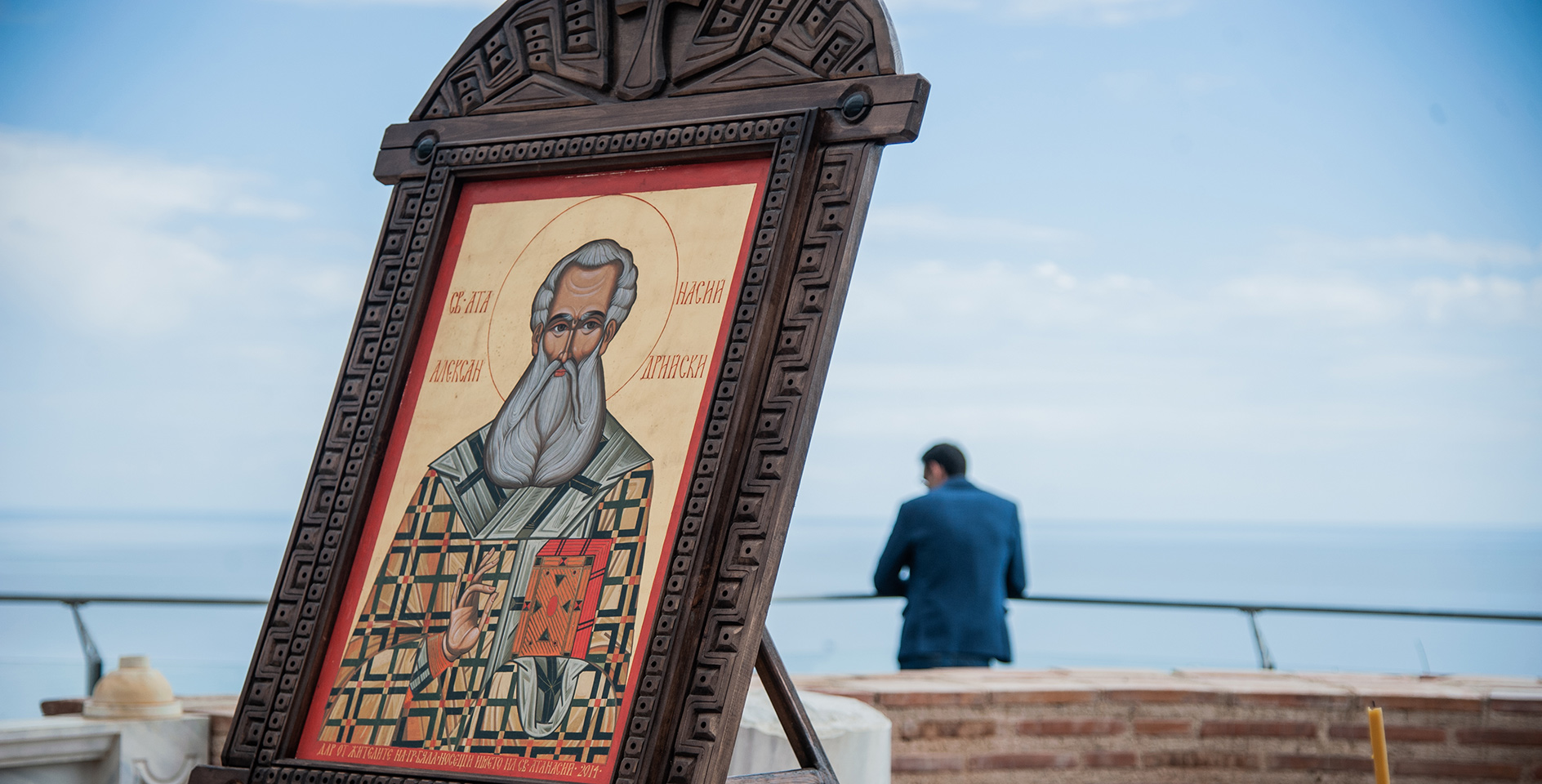If you were a child of the evangelical 1980s and 90s, you likely saw a VHS tape containing a morality tale. Whether it was McGee and Me, Quiggly’s Village, or a plunger-headed cucumber fighting rumor weeds and fibs from outer space, you were told tales of the dangers of lying, envy, and other numerous sins with the help of cartoons, puppets, and animated vegetables.
I don’t remember all the plot lines of such shows, but I do have vivid memories of great tragedy befalling the protagonists when they committed various vices that spun out of control.
While there’s a place for discussing the merits and drawbacks of such entertainment, the aim of cultivating virtue—and warning against vice—is very appropriate. It smacks of the philosophy of the Proverbs. You might say Proverbs was written, among other things, as a warning to young people against vices. The sage tells the young man to avoid joining gangs for a false sense of belonging. Wisdom creates a hedge for the youth against the deadly allure of illicit sex.
Now this is important. Stories cultivate moral sensibility. In her book On Reading Well, Karen Swallow Prior makes this case deftly: when we read books well, we practice moral judgments and further develop our own moral convictions. Stories reduced to mere morality tales are not good literature, but all narratives when told truthfully will develop our understanding of virtue.
How much more does history, when told truthfully, serve us—and our kids—with the formation of virtue.
History is full of women and men who exhibit virtue. And unlike morality tales, these history-shaping men and women live in a very real world, a world like our own. To quote Voltaire, “History doesn’t repeat itself. Man always does.”1Quoted without source attribution in Barabara Tuchman, A Distant Mirror (New York: Ballantine Books, 1978), xiv. No matter what era we study, we are still gripped by our shared imago Dei. Our humanity connects us with figures across history. Indeed, humanity gives us access to models of virtue, and examples of vice.
For every virtue has at either extreme a vice. If the path of virtue is a road, then on each side is a ditch. Virtue is about staying on the road, and not walking into either ditch. If virtue is about keeping to the center, vice is found in among the cattails.
Arius’ overgrown ambition
History has many figures among the cattails. One of them was a man named Arius, and there are three things you should know about him:
First, he was handsome, gifted, and a golden-tongued teacher. He was an influencer. If Twitter was a thing back in 300 A.D., Arius would have had the blue check.
Second, Arius is an example of the failure of temperance. Arius served under Alexander, the man who held office as the bishop of Alexandria, arguably the most important church office in the ancient world at the time. Arius wanted that office, and his ambitions birthed in him a jealousy that eventually overtook him.
Third, in his jealousy, Arius began making up lies about Alexander. And then things got really out of hand. Consider gathering your kids in the family room, or my favorite—around the campfire—and telling them this tale:
The young jealous Arius dug up an old heresy, one we now call modalism, and he accused Alexander of denying that God is one in three persons. Alexander tried to reason with Arius. This first charge was an easy charge for Alexander to defend, but Arius’ jealousy carried him to the next phase, and the rumor weeds grew.
Next, Arius stirred up other bishops and the people. Arius began to explicitly teach that Jesus was not God from eternity. He famously said, “There was a time when the Son was not,” effectively denying Christ’s full deity and saying the Son was a created being. Then, Arius went even further and said that the Spirit was not God.
And as if this wasn’t enough, Arius worked hard to recruit allies to his cause. He used his gifts to gather around himself a group that aligned with Arius’s innovative teaching. To complicate matters, all this took place during the rule of Constantine, the newly converted Christian emperor. Constantine had hoped to use Christianity to reunite the faltering Roman empire. The last thing Constantine wanted was for his Church to split over what he saw as a petty theological issue.
So what began with Arius’ unbridled ambition and jealousy grew into an enormous political controversy. Constantine called a meeting, inviting 1,800 bishops from across the empire, representatives from the Christian East and West.
The meeting took place in modern day Iznik, Turkey, a city that was then called Nicaea. Roughly 300 bishops actually came, which is a rather good turnout considering how costly and time consuming such a journey would have been in those days.
The meeting was long. We’re talking March-to-August long. The council determined that Arius had indeed diverged from the Church’s teaching, and they affirmed a statement from which the Nicene Creed we recite today originated. Arius, along with his followers that wouldn’t yield, were banished.
Now, if only that were the end of the story. The trouble is that the Council was unable to fully uproot Arius and his followers’ vices. The proud man and his adherents regrouped, and many (though not Arius) found ways to wiggle back into church fellowship. They used clever words, avoiding language that was condemned at Nicea, without actually changing their heretical theology.
Athanasius against the jealousy weed
Just five months after the Council of Nicaea, Alexander died, and a young man named Athanasius was elected as his successor. He had served as Alexander’s assistant, and he’d played a critical role at the council.
Athanasius was a man of virtue. He wasn’t a brash man but was known instead for being gentle and pastoral in his approach. And yet he took the Arian threat seriously. He held tightly to the truth of the Scriptures and the deity of Christ without yielding to the political pressure to merely keep the peace.
Athanasius’s commitment to truth made him a problem for Arius and his followers. They saw him as an enemy to be thwarted. But because of Athanasius’ virtue, they were hard pressed to find an accusation that would stick. Nevertheless, they tried.
One of the factions of Arius’ followers went so far as to fake a man’s death, hide him in another city, produce a severed hand (probably from a real corpse), and then claim that Athanasius had maimed and killed the man with sorcery. This attempt to remove Athanasius from power only failed when authorities were able to produce the alleged victim and reveal that he was still alive with two hands!
This wasn’t the end of the story. Arius and his tribe were successful in their attempts multiple times. He was forced into exile on five different occasions by four different emperors.
But when we take a close look at how Athanasius withstood these trials, we see the role of virtue in his life. One critical virtue he demonstrated was fortitude. His commitment to truth was resolute. He endured in faith in spite of banishment and fleeing for his life. Despite these continuous trials, he stayed the course, maintaining his conviction in the deity of Christ and his commitment to the true God made flesh.
There is some scholarly debate, but most likely Athanasius’ magnum opus, On the Incarnation, was written during his first exile. Those who argue against it being written at this time point out that Arius isn’t mentioned in this work. I think it’s more likely Athanasius had his eyes set on a different prize—the purity of the Church.
Athanasius wanted God’s people to know the beauty and majesty of the God who saw fit to dwell among us. He wanted the world to know that the exalted God who created the universe came to dwell on earth as a human. To paraphrase a lengthier passage from On the Incarnation: Just as the prestige of a city is raised when a great king dwells in it, how much more is the human race, when the God of the universe takes on flesh.2Saint Athanasius, On the Incarnation, translated by John Behr, Popular Patristics Series (New York: St. Vladimir’s Seminary Press, 2011), 69. In his writings, Athanasius was clear, and he shows us where true virtue is found—only when we are rooted in Christ.
Athanasius wasn’t alone in his biblical convictions about the person of Christ. There were many other leaders and fellow believers who gave him aid and shelter in his exiles, but the well known phrase Athanasius contra mundum, “Athanasius against the world,” is fitting because it captures the gravity of the pressure he faced and the virtue with which he stood.
Meanwhile, Arius—our man caught in the cattails of vice—who enviously desired the throne of Alexandria, found himself at the end of his life upon another more ignoble throne. While Arius’ case was under consideration for his readmittance and welcome into the fellowship of the church, he experienced a pain in his bowels, entered a public latrine, and immediately died upon the toilet.
When Constantine heard this news, he immediately concluded that Arius was a scheming liar, because—in his view—no man of God would die such an ignoble death.
Arius, in his jealousy, sought fame and influence at the expense of virtue, and it led to his destruction. By contrast, Athanasius, a man of Christ-centered virtue, suffered intrigue and exile but found a prize more valuable than rubies. Nothing could take him away from the pearl of great price he found in Christ.
Just as Arius serves as a somber warning against the dangers of unchecked vanity, envy, and pride, so also Athanasis serves us and our kids as an example of Christlike humility and a tenacious and humble refusal to compromise on the truth.
Passing along church history from generation to generation
In Psalm 78, Asaph tells us of the importance of passing down the story of the faith from generation to generation. The psalm focuses on telling children about acts in history “so that our children should set their hope in God, and not forget the works of God (v. 7).”
Often when we cite this passage, we think about passing down the stories of our faith that we find in the Bible. But it’s also wise to tell our children about the works of God throughout the history of the church, of the men and women who endured many trials with faithfulness and of those who failed by giving into vice.
We need resources to help us do this well. Here are a few of my favorites:
- Christian History Made Easy by Timothy Paul Jones. Covering the span of church history this book has full color pictures and illustrations. It also includes the fun stories and legends that kids love (like the tall tales of “Saint Nick” punching Arius in the nose).
- Light Keepers is a fantastic series that tells the stories of historical figures through the lens of childhood in a way that captures kids’ imaginations.
- Super Heroes Can’t Save You. Todd Miles cleverly breaks down Trinitarian and Christological heresies into gripping stories from history, and clear explanations of doctrine—using superheroes! If you think church history and theology are boring, check out Miles, he’ll change your mind.
Let’s tell our children stories from our shared Christian history. When we tell them the story of Arius’ jealousy and Athanasius’ fortitude, we aren’t just telling kids morality tales of vice and virtue. We are giving them a framework for how to view the entirety of history through the lens of God’s grace. In the stories of men and women who lived lives of virtue, we’re teaching our kids about how God has shown himself faithful across hundreds of years. When we tell them about the works God has done through men and women with Christian virtue, we are strengthening their hope in the God who gives grace to the humble and fortitude to those who depend on him.










